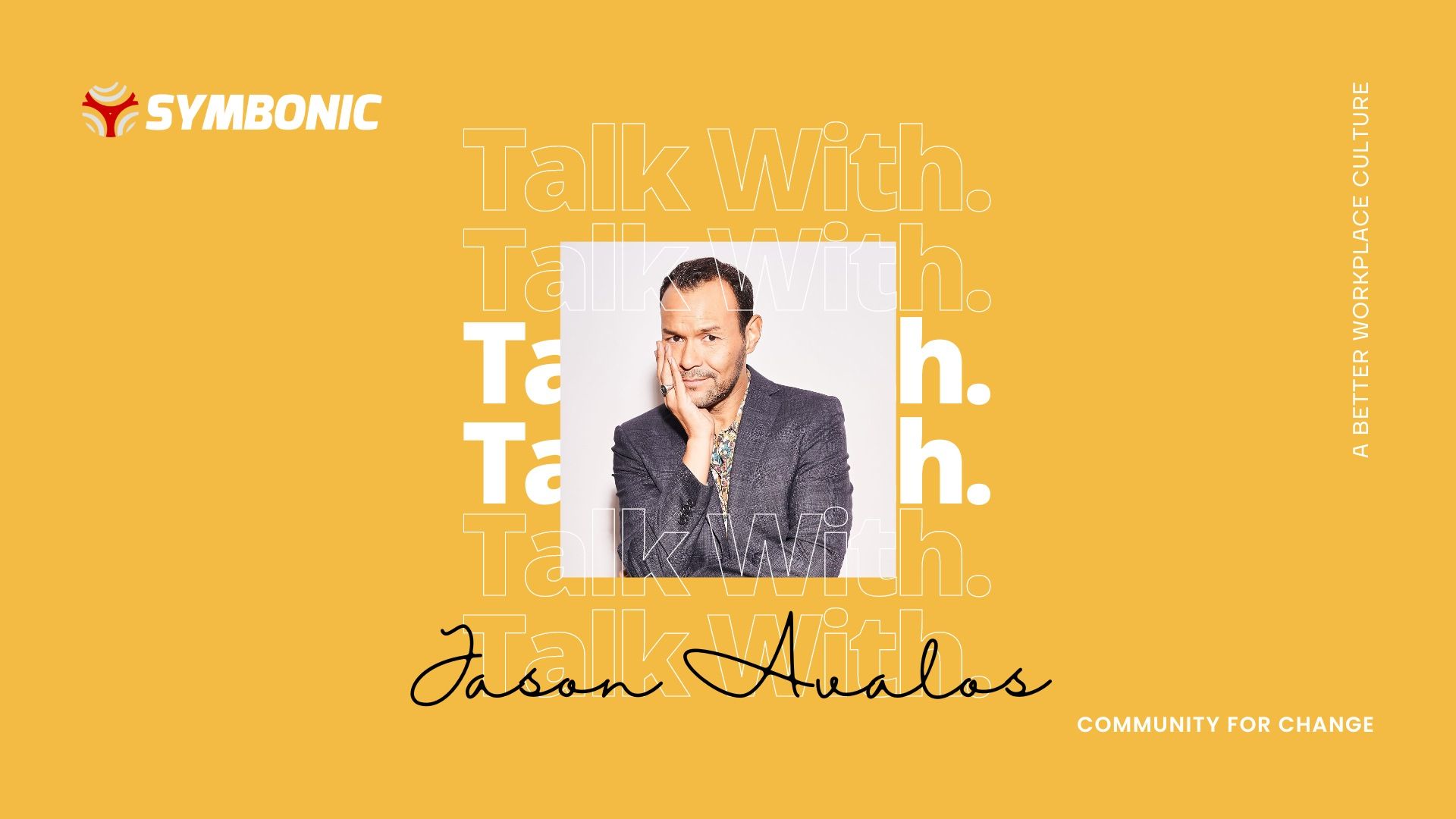Jason Avalos Created His Community and Found His Authentic Voice

Jason Avalos is a dedicated advocate for education and access for the Latinx film community. He founded Schoolhouse Pictures, a production company amplifying underrepresented stories and providing jobs on production sets. Jason is committed to empowering Latinx professionals as he works to bridge the gaps and create opportunities for growth.
Symbonic: Tell us about yourself and your production company Schoolhouse Pictures.
Jason Avalos: I run an inclusive production company,
Schoolhouse Pictures, which launched the first year of the pandemic. We set out to
make more universal films that have Latino leads and inclusive stories, but ones that are driven by
universal themes all audiences can respond to. We're excited because I think the universal piece is
what has been missing in a lot of media, up to now. It's been very culture-centered. Those are
extremely important too, but I think for us and the stories we bring to the table, we want to really
invite a lot of different communities into our world. We've been focusing on that.
It's
been an exciting journey. What got me there was essentially being an actor, filmmaker, writer,
producer, and having to juggle all of those in the air for about 12 years. I've been a script
supervisor on set for over 60 films, pilots, commercials, and that has given me a fresh perspective
on the challenges of the film set. It also gave me the insight to what's missing as far as
inclusivity goes. Things like which communities are missing, how they're represented on set, how
they're protected, how they rise through the ranks, and how they're kept safe on set. All of those
things have accumulated to the solution that I have, which is this production company and the ethos
and the ecosystem of it.
S: That's amazing! Why do you think Latinos in particular are often left out of these conversations and roles? From your perspective, what are some of the most glaring items in your mind and experiences?
JA: It's a dicey thing to be able to promote and protect a certain class of people. I think that system keeps people from being accountable or feeling any type of responsibility to the Latino community. So when certain ethnicities of people are working in those types of jobs, it's out of their reach to understand how much harder it is for us. Therefore they don't feel any need to try to help. I don't want to blame a certain type of people or any of that, but I think the system is built in a certain way. That's one of the biggest blind spots amongst many others.
S: What were some of the biggest obstacles to your own personal success, and how did you overcome those?
JA: I don't know if I've overcome them yet! I'm still very much in it - I think
we're all still very much in it.
For me, the specific one was the business side
of what we do. Not having the access, mentors, court system, or somebody to walk me through how to
finance a film, was a challenge. You can have all the ideas in the world but if you can't bring the
other part, the production and financial side, then it's no good. I think my biggest struggle has
been being an artist and then really turning on the business hat: asking the right questions,
knowing where to look, keeping going when people say no. This business is particularly hard because
people never say no. They just say "later". You never really know what the full story is. I think
all of that took a long time for me to understand.
I'm somebody who is a "what you see
is kind of what you get" kind of guy, so I think a lot of that was beyond me. It took a long time
for me to understand a couple of those pieces.
S: How does being part of the Latinx community motivate your daily work and your future goals?
JA: Again, that one is new for me, frankly, because I hadn't really ever been
connected to that part with my work, only in the past six or seven years have I felt that. Now it's
like a little home. It feels like I've come home. I have my communities of people to be inspired by,
to learn from, to bounce ideas off of, and to speak knowledge to power. It's felt great, actually.
We just started another company called Somos Life, it's a film community and they're all
multi-hyphenate people who are all doing really cool, fascinating things. They all have some success
in their own right and are all juggling. It's been fun to go and see how other people juggle their
multi-hyphenate identities. I think a lot of Latinos are warming up to the fact that we have to be
multi-hyphenate to exist in this world. It makes me feel strong to see other people, other
Latinos, doing that. Plus, I think it's super important to build community, because I
didn't have that when I was starting out.
S: What advice would you give to your fellow Latinos and multi-hyphenate creators?
JA: I would say finding your voice. Especially in the Latino world, hold your own
voice and let that carry you through your projects as much as you can afford to. As Latinos, we often get
bunched up together in the culture and audience's eyes. We can get bogged into an idea of what
Latino is. For me, I'm a little off kilter, I like genre films and LOVE horror, so I invite all
those elements into play when I work. The more you can pin down what your authentic voice is,
the more success you will find.
Follow our coverage for Hispanic Heritage Month from September 15th to October 15th on our Latinx Hub.
INNOVATION
LEADERSHIP INNOVATION
INDUSTRY INNOVATION
RESOURCES